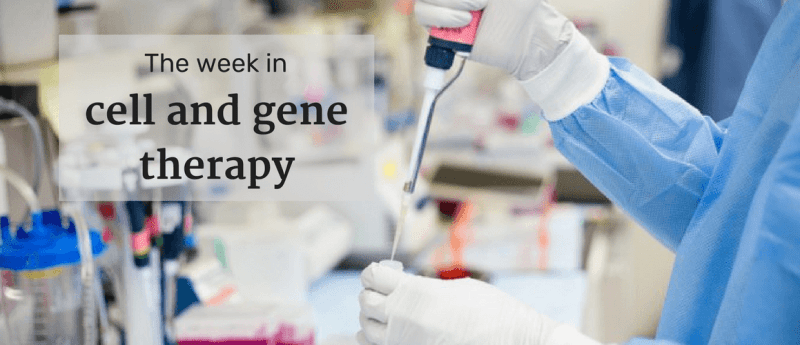Cell therapy weekly: Mini-liver organoids created via 3D printing demonstrate stronger survival

This week: Bristol-Myers Squibb progress with their CAR-T therapy and the first US trial for age-related macular degeneration utilizing autologous iPSCs.
The news highlights:
Mini-liver organoids created via 3D printing demonstrate stronger survival
Bristol-Myers Squibb submit CAR-T cell therapy biologics license application for liso-cel
NIH launch first US autologous stem cell therapy trial against dry age-related macular degeneration
Mini-liver organoids created via 3D printing demonstrate stronger survival
Researchers from the Human Genome and Stem Cell Research Center (University of São Paulo, Brazil) have produced hepatic organoids that can mimic many of the vital liver functions. The process, which takes only 90 days, utilized 3D printing to extend the survival of the iPSC-derived organoids, overcoming the gradual loss of cell-contact that has previously been observed.
“Instead of printing individualized cells, we developed a method of grouping them before printing. These ‘clumps’ of cells, or spheroids, are what constitute the tissue and maintain its functionality much longer,” explained Ernesto Goulart (University of São Paulo).
Read more or read the whole story at our sister site, 3DMedNet
Bristol-Myers Squibb submit CAR-T cell therapy biologics license application for liso-cel
Following positive results from the TRANSCEND NHL 001 clinical trial, Bristol-Myers Squibb (NY, USA) have lodged a biologics license application with the US FDA (MD, USA) for their liso-cel CAR-T therapy.
Liso-cel, officially known as lisocabtagene maraleucel, is Bristol-Myers Squibb’s autologous, anti-CD19 CAR-T treatment for relapsed or refractory large B-cell lymphoma that has received two prior forms of therapy. The drug has already been granted both Breakthrough Therapy and Regenerative Medicine Advanced Therapy statuses by the US FDA, with this being the latest step in its journey towards the clinic.
NIH launch first US autologous stem cell therapy trial against dry age-related macular degeneration
After successful preclinical results, the National Eye Institute, a part of the National Institute of Health (MD, USA), is initiating the first clinical trial in the US to combat dry age-related macular degeneration, utilizing patient-specific iPSCs obtained from blood cells. The protocol involves differentiating the iPSCs into a single sheet of retinal pigment epithelial cells, before surgically implanting them within the eye.
“The protocol, which prevented blindness in animal models, is the first clinical trial in the US to use replacement tissues from patient-derived induced pluripotent stem cells,” commented Kapil Bharti (National Eye Institute).
For more weekly cell therapy news, read previous editions of the cell therapy weekly.
Have any additional questions about this story? Ask us in the comments, below.
Find out more in these top picks from the Editor:
- New method for high-volume production of engineered gut and liver tissue
- iPSC-derived retinal epithelial patch improves functionality in porcine AMD model
- CAR-T cell therapy effective in therapy-resistant mantle cell lymphoma patients